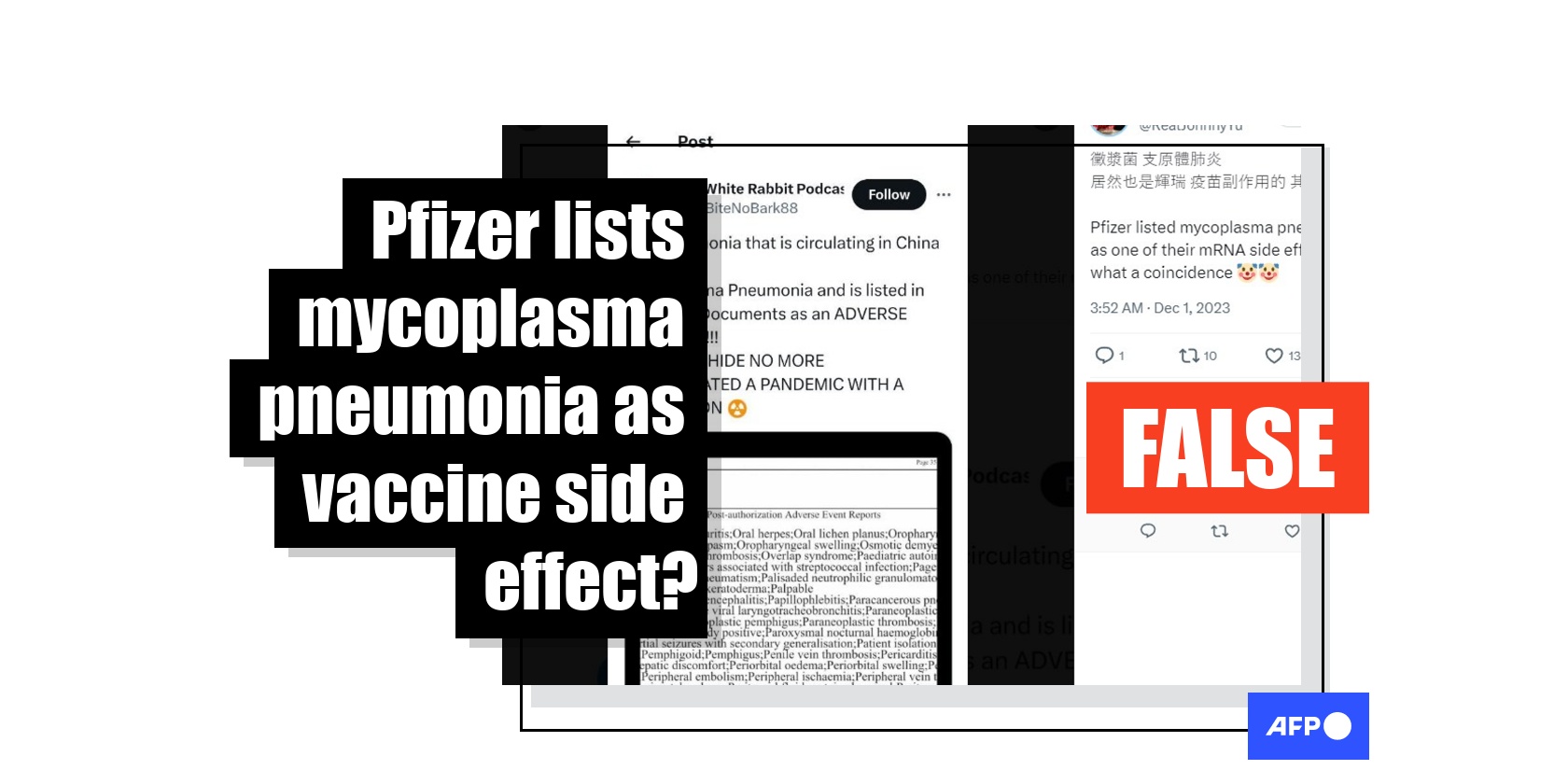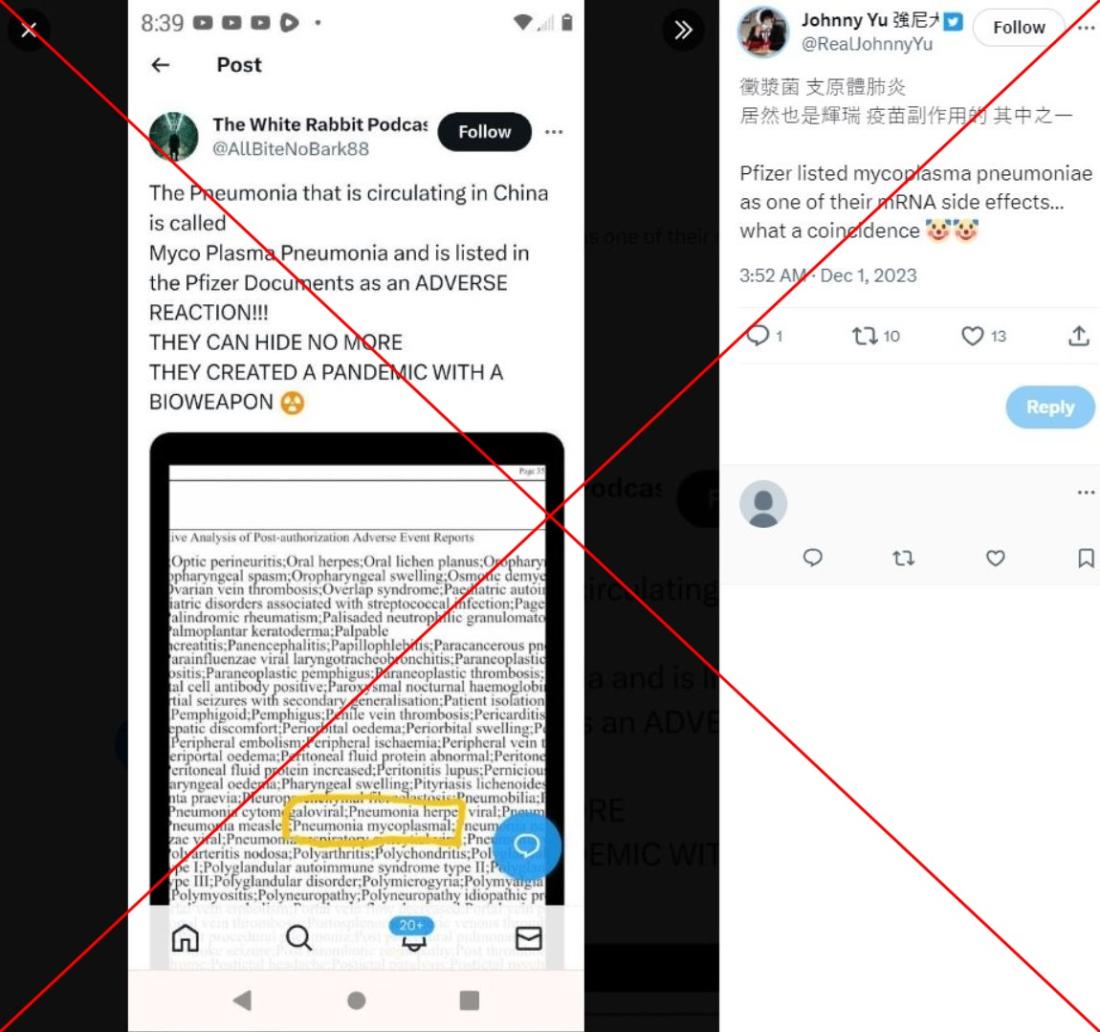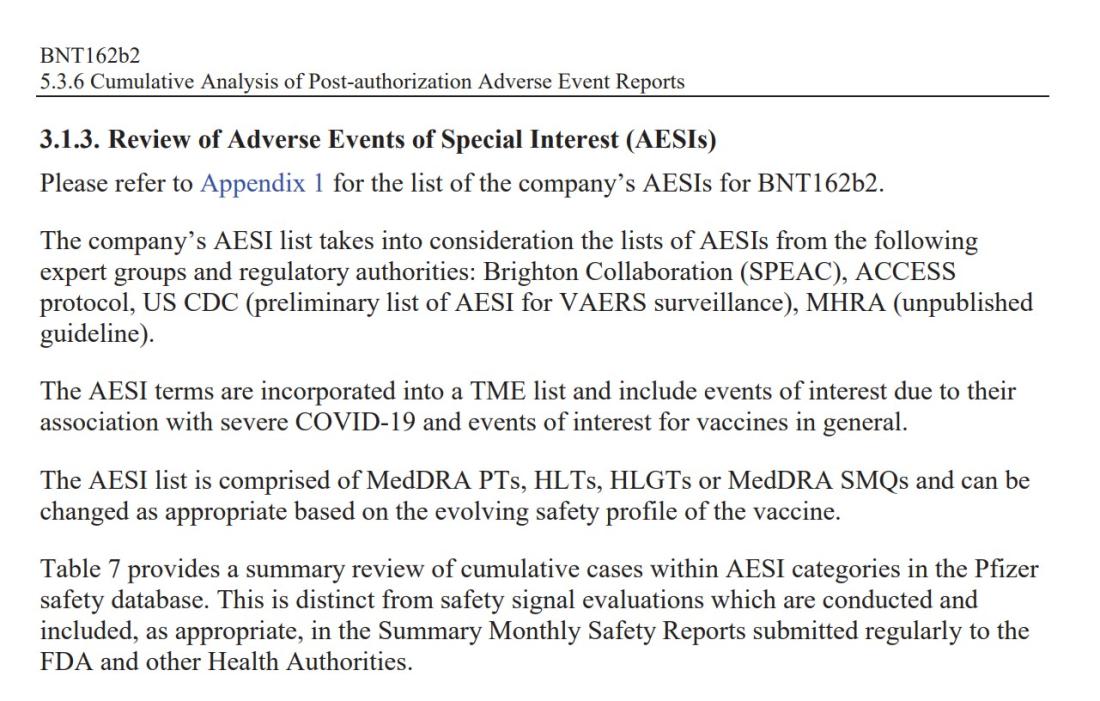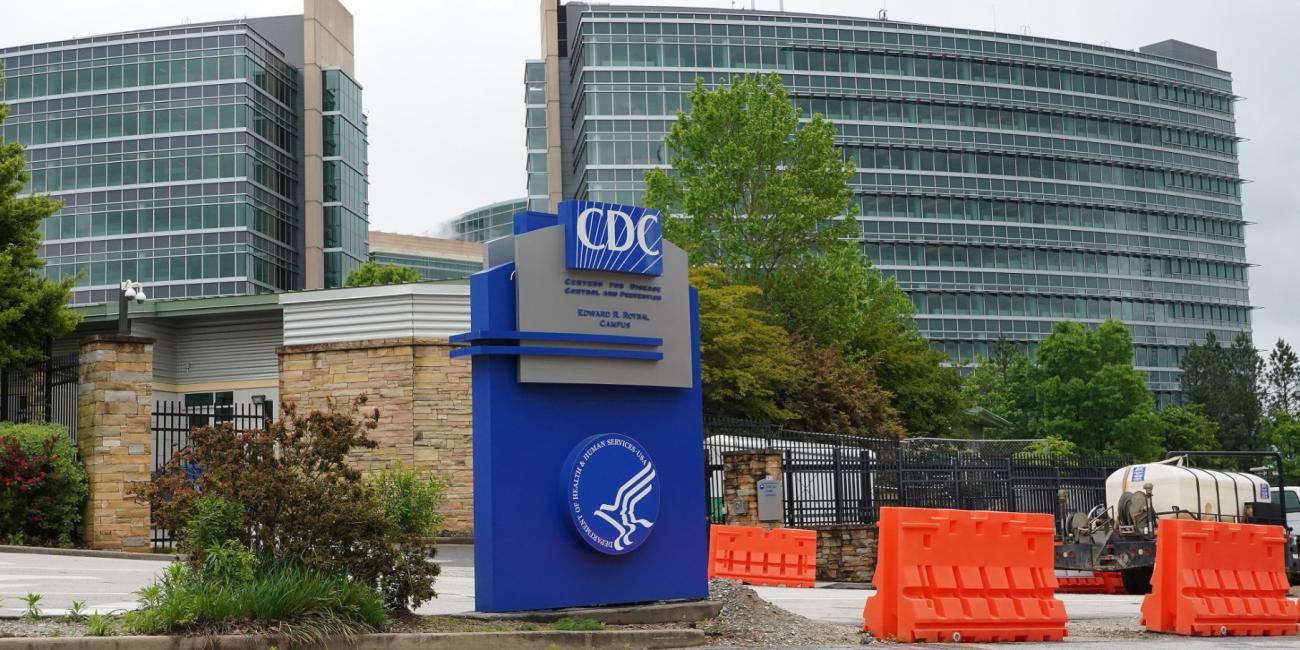
Social media users falsely claim Pfizer's Covid jab can cause mycoplasma pneumonia
- This article is more than two years old.
- Published on December 29, 2023 at 11:11
- 4 min read
- By Tommy WANG, AFP Hong Kong
"Pfizer listed mycoplasma pneumonia as one of their mRNA side effects… what a coincidence," reads a post written in both English and traditional Chinese from November 30 on X, formerly known as Twitter.
It contains a screengrab of another post that similarly claims mycoplasma pneumonia "is listed in the Pfizer documents as an adverse reaction" from the US corporation's mRNA vaccine.

The claim was shared after China recorded a surge in flu-like illnesses among children beginning mid-October that included mycoplasma pneumonia, according to the World Health Organization (archived link).
Similar falsehoods about the vaccine were circulated elsewhere on social media including Facebook and Gettr, and have been shared in several languages such as French and Korean.
However, the document from Pfizer does not list mycoplasma pneumonia as a side effect of the vaccine. It lays out a variety of medical conditions that have previously been observed following the administration of other jabs. These are therefore recommended for monitoring, but no causal link has been established with Pfizer's Covid shot.
Experts told AFP that the spike in infections around China is expected during winter and occurs every year in countries across the world.
'Adverse events'
Keyword searches by AFP for text in the screenshot with the false post led to the Pfizer paper, which is titled "Cumulative Analysis of Post-Authorization Adverse Event Reports".
The document mentions mycoplasma pneumonia in the appendix on page 36 under a section listing "adverse events of special interest" (archived link).
It was released under a Freedom of Information Act request made by US-based group Public Health and Medical Professionals for Transparency, and has been available on their website since November 2021.
AFP has previously debunked other social media posts that claimed the document contains a list of vaccine side effects.
Siddharth Sridhar, a clinical assistant professor with the Department of Microbiology at the University of Hong Kong, told AFP in a December 15 email that the claim about side effects is baseless.
"There is no evidence behind the claim that severe mycoplasma pneumoniae is a side effect of the vaccine," he said.
"It's been three years now since the global vaccine rollout. We've had a good, long look at vaccine side effects and these vaccines seem remarkably safe."
Aurélie Grandvuillemin, deputy head of the Burgundy Regional Pharmacovigilance Centre in France, told AFP last year: "This is in no way a list of the adverse effects reported from the Pfizer-BioNTech vaccine."
They are conditions that must be monitored for several reasons, including their association with previous vaccines and severe cases of Covid-19. The list includes symptoms for which no causal relationship has been established.
Francesco Salvo is director of the Bordeaux Pharmacovigilance Centre and coordinated France's safety investigation into the Pfizer vaccine. He also told AFP the list does not include side effects of the jab.
They are medical conditions to be monitored with priority, as specified by immunisation experts before the jab was rolled out, "because they could represent the negative effects of the vaccines", he said.
The WHO has described these "adverse events of special interest" as conditions that have potential to be "causally associated" with a vaccine so need to be carefully monitored and confirmed by further studies (archived link).

Mycoplasma pneumonia infections occur "year-round in many different climates worldwide", with epidemics every few years, according to an article published in The Lancet (archived link).
Experts told AFP that winter's arrival, the end of Covid restrictions and a lack of prior immunity among children are the likely factors behind China's surge in respiratory illness.
Dongyan Jin, a professor specialising in virology at the University of Hong Kong, told AFP on December 18 that the spike "could be due to a combination of factors including lack of immunity in children, more publicity, more tests, public anxiety and enhanced public awareness".
"It is not dramatically different from post-pandemic surges of respiratory infections in other places around the world," he said.
"The increases in mycoplasma infections that have been reported are part of the expected, usual increase in such infections that are seen every year," added William Schaffner, professor of preventive medicine at Vanderbilt University in the US state of Tennessee.
Schaffner told AFP in an email on December 15 that the spike included the United States, where the Centers for Disease Control and Prevention (CDC) warned a day earlier that rates of respiratory illness were "rapidly increasing" (archived link).
Similarly, the CDC's European counterpart published an article on December 15 that said viral and bacterial respiratory pathogens were expected to continue circulating "in the coming months" (archived link).
It also said restrictions imposed during the Covid pandemic had led to reduced immunity, which may "exacerbate the respiratory disease burden" this winter.
AFP has previously debunked other false information related to mycoplasma pneumonia in reports here and here.
Copyright © AFP 2017-2026. Any commercial use of this content requires a subscription. Click here to find out more.
Is there content that you would like AFP to fact-check? Get in touch.
Contact us




